60 F. high in the Twin Cities, a new record for KMSP. Old record:
59 F. in 1998
37 F. average high on November 22.
38 F. high on November 22, 2011.
.01" rain fell yesterday.
Trace of snow as of 7 pm yesterday.
My (Revised) Christmas List
Dear Santa - I just woke up from a Thanksgiving food coma. Yep, I've been good year.
Stop laughing.
No iGadgets, bad ties or cologne this year, please!
The only thing I want under the tree is a
Guardian Series Generac emergency power generator,
made in Waukesha, WI. For the next time winds gust over 40 mph and a
toppling tree 30 miles away plunges my home back into the 19th century.
Home generators are flying off the shelves in the wake of record summer
derechos and Sandy.
Did we really see low 60s yesterday? The mercury
soared to a record 60 in the Twin Cities, breaking the old record of 59
set in 1998. Not bad, considering 9 hours, 19 minutes of daylight -
coming less than a month from the Winter Solstice.
Watch for ice out there early; wind chills today
dip into single digits. It'll be cold enough for snow thru next
weekend, but storms will shun Minnesota. A couple of of reinforcing
clippers keep us in heavy jackets into next week, but long range models
are hinting at 50-plus highs in early December. Really.
As my 10 year old niece explains "Paul, winter is getting squished!"
Yep.
Details below: anyone under the age of 27 has
never experienced a colder-than-average month, worldwide. According to
NOAA October was the 332nd month in a row warmer than the 20th century
average.
If You're 27 Or Younger, You've Never Experienced A Colder-Than-Average Month. Well this statistic puts things into perspective.
Grist.com has more details: "
Nowhere
on the surface of the planet have we seen any record cold temperatures
over the course of the year so far. Every land surface in the world
saw warmer-than-average temperatures except Alaska and the eastern tip
of Russia. The continental United States has been blanketed with record
warmth — and the seas just off the East Coast have been much warmer
than average, for which Sandy sends her thanks. The National Oceanic and
Atmospheric Administration summarizes October 2012:
The average temperature across land and ocean surfaces during
October was 14.63°C (58.23°F). This is 0.63°C (1.13°F) above the 20th
century average and ties with 2008 as the fifth warmest October on
record. The record warmest October occurred in 2003 and the record
coldest October occurred in 1912. This is the 332nd consecutive month with an above-average temperature..."
* map above courtesy of NOAA.
Slipping And Sliding. Wind Advisories are still
posted, the local NWS has issued a Winter Weather Advisory for portions
of central Minnesota. If your Friday travels take you toward Rice, Lake,
St. Cloud, Little Falls or the Lake Mille Lacs area you will run into
some snowy, ice-covered roads. Details:
...FIRST WIDESPREAD ACCUMULATING SNOW EVENT THIS YEAR IS CREATING
TRAVEL PROBLEMS...
.LIGHT TO MODERATE SNOW CONTINUES TO FALL GENERALLY ALONG AND
NORTH OF INTERSTATE 94. SNOW ACCUMULATIONS ACROSS CENTRAL
MINNESOTA HAVE BEEN ABOUT AN INCH...WITH MORE SNOW EXPECTED TO
FALL TONIGHT. VERY SLIPPERY ROAD CONDITIONS HAVE BEEN
REPORTED...RESULTING IN NUMEROUS ACCIDENTS IN THE ST CLOUD AREA.
AS TEMPERATURES CONTINUE TO FALL INTO THE TEENS AND LOW 20S LATE
TONIGHT...ANY REMAINING MOISTURE ON THE ROAD WILL FREEZE...FURTHER
WORSENING TRAVEL CONDITIONS. TOTAL SNOW ACCUMULATIONS ARE EXPECTED
TO RANGE FROM 1 TO 3 INCHES.
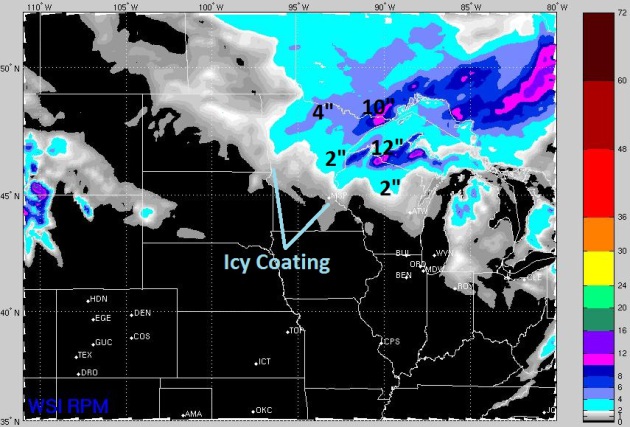
72 Hour Snowfall Forecast.
WSI's high-resolution 12 km. RPM model is printing out some 2"+ snowfall
totals for portions of central and northern Minnesota and northern
Wisconsin, closer to 4" from Bemidji to Hibbing. Lake effect snow
squalls will kick in behind the storm, piling up some 8-16" amounts over
far northern Wisconsin and the U.P. of Michigan. Right about now anyone
with a snowmobile has an itch that a scratch can't reach...
Parka Weather. I'll be shopping for a new heavy coat
today. The combination of 20s, and winds gusting over 20-30 mph will
make it feel like +5 to +15 F. Nothing we haven't experienced countless
times over the years - but coming after a spell of early October-like
warmth it'll feel like a slap across the face.
NOAA forecast map above valid 1 pm today.
Frostbite Potential. We've been thru this drill
before, hundreds of times. But coming after a run of near-record warmth
I'm concerned that some power-shoppers won't take the cold front
seriously. The combination of 20s and winds gusting to 30 mph will make
it feel like +5 to +15 F. at times. If you're outside (with exposed
skin) for 20-30 minutes you could become a candidate for a mild case of
frostbite. Slap on a few extra layers before hitting the malls today.
Latest Drought Monitor.
There hasn't been much change in the last week: severe drought reported
across most of the Twin Cities metro - 25% of Minnesota in an extreme
drought. The driest conditions can be found from St. Cloud and Willmar
to Redwood Falls, Mankato and most of southwestern Minnesota. The latest
Drought Monitor is
here, courtesy of NOAA and USDA.
The Making Of The Hottest Year On Record: USA Temperature Update.
Here's an update on 2012, which will most likely go down into the
record books at the warmest year of the last 115 across the nation. In
fact there is a 90% probability 2012 will set a new record for warmth.
10 of the 11 warmest years have been observed since 2000. NOAA's
ClimateWatch has more: "...
Now
how does 2012 fit in? Well, 2012 has been warm, and the first driver
of the extreme warmth was March. March was the warmest March on record
by far, and this caused 2012 to leap out way ahead of the pack. We had
the warmest spring on record, the warmest July on record, the third
warmest summer on record. All of these together helped 2012 maintain a
huge lead throughout the year. Average temperatures in October pulled
2012 back to the pack ever so slightly, but you can see that the
year-to-date temperature not only remains well above average, it
remains well above history. So we will most likely finish with the
warmest year on record—and by a huge margin. Go to the CPC web page to
see their outlook for yourself, and while you’re at it, check out all
our climate records at the climate monitoring web site. Keeping the big
picture in perspective is a big part of being “climate smart.”
Map above:
NOAA NCDC.
Minnesota, Wisconsin, Iowa and the Dakotas are among 21 states on track
to experience the warmest year in the last 115 years of record-keeping.
Every state, except for Washington, has had a warmer than average year.
332. October was the 332nd month in a row of global air temperatures warmer than the 20th century average. Source:
NOAA NCDC.
Thanksgiving Warmth. Before the icy front arrived Thursday afternoon temperatures were unseasonably mild statewide. The mercury hit a record 60 in the Twin Cities, breaking the old record of 59 F. set in 1998.
Cold And Dry. It was nice while it lasted, but the
maps look more like classic late November - early December weathher
looking out into the end of next week. West to northwest steering winds
aloft will prevent Gulf moisture from reaching Minnesota, meaning a
continuation of storm-free weather looking out 1-2 weeks. The drought
signal is still very strong, and shows no immediate signs of fading.
ECMWF forecast highs (red) above are in Celsius. No, it won't get quite
THAT cold.
How Does The Jet Stream Work? The
U.K. Met Office
has an informative YouTube clip focused on explaining the how's and
why's of the ubiquitous jet stream steering currents aloft: "
What is the jet stream? How does the jet stream affect our weather in the UK? This animation explains how the jet stream works."
Drought Conditions Threaten Mississippi River Transport.
There just isn't enough water in the Mighty Mississippi, the result of
one of the worst droughts since the 1930s. Details from
The Epoch Times: "
Persistent
drought conditions in the upper Midwest are threatening the nation’s
waterways, with the mighty Mississippi River so low that barge traffic
has been affected and may be forced to halt. Over 90 barges have been
either stranded or grounded due to low water in recent weeks, according
to the Waterways Council Inc. (WCI),
a public policy organization representing shippers and ports. Low water
levels are also likely to increase due to continuing dry conditions,
compounded by the actions of the U.S. Army Corps of Engineers, who have
orders to reduce water flow from the Missouri River into the
Mississippi..."
Photo credit above: "
A Coast Guard boat patrols in the
foreground as a barge makes its way down the Mississippi River Friday,
Nov. 16, 2012, in St. Louis. A top Corps of Engineers official has
ordered the release of water from an upper Mississippi River reservoir
in an effort to avoid closure of the river at St. Louis to barge traffic
due to low water levels caused by drought." (AP Photo/Jeff Roberson)
Can We Engineer Storm-Proof Metropolitan Areas? Will we go the way of the Dutch, building huge seawalls, dikes and levees to keep the sea out?
Huffington Post has a very interesting story focused on possible ways to mitigate the next (inevitable) storm surge; here's an excerpt: "...
Next
time the damage done in dollars and in lives could be far worse. At
its peak, Sandy was only a Category 1 storm. Its winds never went above
90 miles per hour near New York. Were something like a Category 4
storm, with winds of 131 to 155 miles per hour, to make landfall near
the city, the devastation would be awful. Many more would die. Houses
would be toppled over by sheer windforce, subway tunnels could be
flooded for months instead of a week, and the economic capital of the
United States could be paralyzed. The city would incur $500 billion
worth of damage, according to a 2006 analysis by the Department of Homeland Security. As the climate continues to change, the damage could be even worse. According to a 2007 report by Risk Management Solutions and the University of Southampton, by 2070 the New York area will have 2.9 million people and $2.1 trillion in assets exposed to coastal flooding..."
How To Build A More Resilient Power Grid. Here's another thought-provoking article from
Scientific American: "
In
the days leading up to Hurricane Sandy's destructive march on the East
Coast, utilities warned customers to prepare for widespread outages
and potentially extensive power failure. The question was not if the
grid would fail, but to what extent. The storm highlighted an already
well-known problem: The U.S. power grid is vulnerable to extreme weather. As officials from New York to Venice,
Italy, have acknowledged in recent weeks, climate change is likely to
increase the prevalence of such weather. And according to analysts and
outside groups working on the problem, there is no one-size-fits-all
remedy that can insulate the ailing grid against an escalation of the
elements..."
Photo credit above: "
Technology such as smart meters and micro-grids can help the vulnerable U.S. electric grid weather extreme storms."
Image: Flickr/Christopher Schoenbohm
Vetoing Business As Usual After The Storm.
Rebuilding in high-risk coastal areas after each and every hurricane is
not only futile, but expensive, considering (all) U.S. taxpayers are
picking up the tab. Here's an excerpt of a story at
The New York Times: "
Not a month after Hurricane Sandy
there’s a rough consensus about how to respond. America is already
looking to places like London, Rotterdam, Hamburg and Tokyo, where sea
walls, levees and wetlands, flood plains and floating city blocks have
been conceived. New York clearly ought to have taken certain steps a
while back, no-brainers after the fact. The Metropolitan Transportation
Authority ought to have installed floodgates and louvers at vulnerable
subway entrances and vents. Consolidated Edison should have gotten its
transformers, and Verizon its switching stations, out of harm’s way,
and Congress should have ordered the Army Corps of Engineers to study
the impact of giant barriers to block parts of the city from the sea..."
Photo credit above: "
One of the largest piles of storm
debris at the Jersey shore is shown in this Nov. 15, 2012 photo in Long
Branch N.J. Superstorm Sandy created tons of debris that towns in New
York and New Jersey are still struggling to dispose of weeks later.
Three weeks in, the round-the clock effort to remove storm rubble has
strained the resources of sanitation departments and landfill
operators, and caused heartaches and headaches for thousands of
families." (AP Photo/Wayne Parry)
Outsmarting The Surge. How do we build more
surge-resilient communities along the coast? Is it even theoretically,
and cost-effectively possible to do so? Here's an excerpt of a terrific
article at
Time Magazine: "
After
Hurricane Sandy hurled the Atlantic at the Northeast coast on Oct. 29
and 30, New York Governor Andrew Cuomo returned from touring a
shell-shocked New York City to face reporters. The storm surge had
inundated lower Manhattan, Staten Island and parts of Brooklyn and
Queens. It had obliterated the New Jersey shore. Across more than a
dozen states, from North Carolina to Maine and as far west as Michigan,
it left more than 50 people dead and more than 8 million without power,
and it likely caused more than $20 billion in damage. Sandy, a seemingly
minor Category 1 hurricane, was a major catastrophe..."
Photo credit above: Andrew Quilty / Oculi for Time.
Hurricanes And Climate Change. An estimated 90% of
warming has gone into the world's oceans. Are those (increasingly warm)
ocean waters helping to spike the hurricanes that do get going? Here's a
clip from
PBS NOVA: "
When
it engulfed swaths of coastal New York and New Jersey, Hurricane Sandy
became an instant symbol of a new age of extreme weather fueled by
climate change. New York Mayor Michael Bloomberg endorsed President Obama to nudge him to address climate. Bloomberg Businessweek summed up this sentiment with its Sandy cover story, "It's Global Warming, Stupid."
But is it, really? As one of the most extreme kinds of extreme
weather, hurricanes already pose a mortal threat to anyone living along
the Atlantic and Gulf Coasts and other tropical cyclone trouble spots.
If we face the prospect of routine superstorms amped up by the extra
heat and moisture from global warming—or, in the case of Sandy, merging
with other systems into freakish weather hybrids—that's a truly
apocalyptic threat...."
NOAA Scientist; 80% Percent Chance Recent Heat Records Due To Climate Change. Is it possible to connect the dots and link attribution to a warmer atmosphere? The Washington Post's
Capital Weather Gang has the story - here's an excerpt: "Is climate change giving our weather just a little nudge to make setting heat records -
like Washington, D.C. just experienced - vastly more likely? That’s the opinion of one NOAA scientist. Meet
Martin Hoerling,
a research meteorologist at NOAA’s Earth System Research Laboratory. I
recently participated with him and several other climate scientists in
a
Google Hangout conversation.
What Hoerling had to say about climate change and record-setting
temperatures was fascinating. He makes a compelling case that
human-caused climate change isn’t causing heat waves, but - in many
instances - adding to their intensity. Consider these excerpts from his
commentary, about 34-38 minutes into the 60 minute panel discussion.
“....
the globally averaged temperature of the planet has risen
beyond any doubt beyond where you would expect ... with natural
variability alone...”
"Ask Paul". Weather-related Q&A.
Hey Paul. Does it look like we will have more tornados (4) than inches of snow (trace) this month?
Kent from Eden Prairie
Kent - I think you're right. We've had a whopping
2/10ths of an inch of snow so far this month (last Monday), and the odds
of accumulating snow between now and the end of November are small, and
dwindling. Earlier models were hinting at a little snow next Tuesday,
but now models suggest the next storm will (once again) sail off to our
south and east. When in a drought don't predict rain...or snow. I
suspect snow lovers will remain frustrated into at least the first half
of December.
Hey Paul - What is the latest mosquitoes have been seen in Minneapolis? I just killed an August size mosquitoe and it's Tuesday November 20, 2012! Mosquitoes thanksgiving warning.
Jim Reid
Jim - I included your
note, because it made me laugh. Thank you for that. I have no clue what
the latest mosquito sighting might be here in the metro area, but I
suspect we're close to a record. Does anyone even keep that data? I
predict a dire lack of mosquitoes by Friday as cold air comes rushing
back into town.
Ok, I know this is a month or more away,
but, already stressing about Christmas holiday. Any hints as to weather
for Christmas? (relatives coming!) Lots of snow, little snow? Mild
temps or extremely cold??
Thanks!
Cheryl Brown
Cheryl - I feel your pain. Welcome to the joyously
stressful holiday season. Did I buy enough gifts? Is the house ready? Is
there enough food in the house? The stress of expectations and family
togetherness is enough to push anyone over the edge. Add (foul) weather
to the mix and it's enough to make you crack! The reality: a Christmas
forecast isn't in the cards - it's still too far out to say with any
level of confidence. NOAA is predicting a colder than average month (I
agree). But droughts are stubborn, persistent things - they tend to take
(many) months to correct, and my hunch, my gut, is that drier than
average weather will linger into much of December. I think it will be
cold enough for snow - but will we have any (southern) moisture to work
with? My hunch: no mega-snow-storms thru the first half of December, but
one of these arctic smacks may twist jet stream winds enough to bring
some real moisture north. I certainly wouldn't rule out a white
Christmas, but if we do pick up significant snow it may not be until the
latter half of December. Stay tuned.
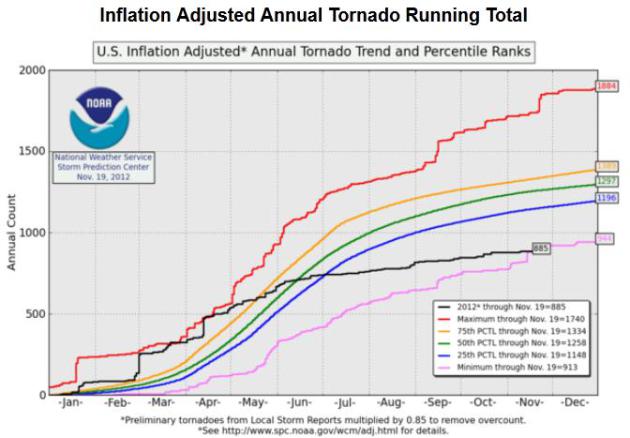
About Face: U.S. Tornado Activity Near Low Point In Modern Record. The always prolific, always-interesting
Capital Weather Gang summarizes America's tornado situation for 2012. It turns out the drought and excessive heat had at least one silver lining: "
After
one of the busiest years for tornadoes in 2011, tornado numbers in
2012 have come crashing down to historic lows. In 2011, there were 1692
twisters - second most on record. This year, only 882 tornadoes have
touched down. (Tornado records date back to 1950*). “[W]e are
approaching a theoretical minimum in the annual tornado count for the
modern era,” said Greg Carbin, warning coordination meteorologist at
the National Weather Service Storm Prediction Center in Norman, Ok.
What’s especially remarkable about the year’s depressed numbers is that
tornado activity got off to a red-hot start. Through mid-April,
tornado counts were highest on record. But then, an extended tornado
drought struck and the count ranking plummeted..."
Graphic above courtesy of
SPC, NOAA's Storm Prediction Center.
Weather Data From Nation's Largest Wind Farms Could Improve U.S. Models, Forecasts.
Here's one way to initialize models with higher quality (real-time)
weather data - tap the network for wind farms around the U.S. - a
brilliant idea described in this
phys.org article: "
NOAA
now has data sharing agreements with Iberdrola Renewables of Portland,
Ore., and NextEra Energy Resources of June Beach, Fla. - the country's
two largest generators of wind-generated electric power, according to
the American Wind Energy Association. The companies will provide
valuable weather observations from instrumented towers in their wind
farms and wind speed data from instruments atop wind turbines. Since
2011, Excel Energy of Minneapolis, Minn. has provided similar
observations to NOAA...."
 5 Apps For Surviving Black Friday.
5 Apps For Surviving Black Friday. Shopping fatigue? There's an app for that.
Newmediarockstars.com has the details: "
If you’re not willing to risk getting trampled
for that $5 discount on the iPad or aren’t ready to fight to the death
for the last Sesame Street doll, please don’t bother reading the next
few paragraphs. But if you’re battle-ready for Black Friday, you’ll need
to have some survival skills if you want to get the gifts you want at
the lowest prices. Having these apps on your iPhone will help you be savvy when it comes to finding deals and the nearest toilet."
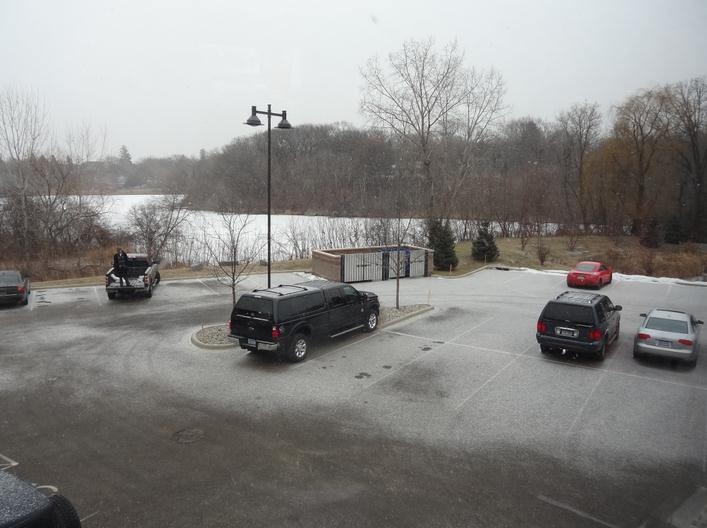 Paul's Conservation Minnesota Outlook for the Twin Cities and all of Minnesota:
Paul's Conservation Minnesota Outlook for the Twin Cities and all of Minnesota:
TODAY: Icy roads possible. Mostly cloudy, numbing winds. Wind chill: 5-10. Winds: NW 15-30. High: 28
FRIDAY NIGHT: Partial clearing, still very cold. Low: 16
SATURDAY: More sun, less wind. A bit better to be outside. High: 33
SUNDAY: Mix of clouds and sun. Still dry - good travel weather. Low: 22. High: 34
MONDAY: Next clipper. Chilled sunlight, colder. Low: 18. High: 29
TUESDAY: Clouds increase, quiet. Low: 16. High: 31
WEDNESDAY: Plenty of sun, fleeting thaw. Low: 20. High: 34
THURSDAY: Canada's leaking again. Chilly with lot's of sun. Low: 15. High: 28
Climate Change...
 Climate Change Causes Insurers To Rethink Price Of Risk After Hurricane Sandy.
Climate Change Causes Insurers To Rethink Price Of Risk After Hurricane Sandy.
Private insurers won't touch coastal properties, because of rising seas
and a trend toward more severe storms, hurricanes and Nor'easters. If
it wasn't for federal property insurance coastal residents wouldn't be
able to keep rebuilding, and that's the source of growing controversy.
The
PBS NewsHour examines the topic of risk in this interview; here's an excerpt: "
Climate
change is our new normal. We're seeing more increased storms
everywhere, all across the country. It is costing us tens and tens of
billions of dollars, $32 billion to the insurance sector last year. But
last year, when we surveyed 88 insurance companies and asked
them, do you have climate policies in place, are you acting on climate,
11 out of 88 companies had a plan to address climate risks to their
bottom line.
PAUL SOLMAN: The rest didn't. So, what is the industry's comeback?
ROBERT HARTWIG: All insurance companies are paying very careful attention to the variability and the volatility in the climate.
You can have a big debate about what the cause of that is. But
insurers use all the information at their disposal in order to ascertain
the risk, measure that risk in a very scientific manner, and then
assign a price to that risk..."
 Climate Change Challenges Transportation System In The U.S
Climate Change Challenges Transportation System In The U.S. Our infrastructure is showing its age - the situation compounded by (increasingly) extreme storms, as reported by AP and
Huffington Post:
"
Wild
weather is taking a toll on roads, airports, railways and transit
systems across the country. That's leaving states and cities searching
for ways to
brace for more catastrophes like Superstorm Sandy that are straining the
nation's transportation lifelines beyond what their builders imagined.
Despite their concerns about intense rain, historic
floods and record heat waves, some transportation planners find it too
politically sensitive to say aloud a source of their weather worries:
climate change. Political differences are on the minds of the American
Association of State Highway and Transportation Officials, whose advice
on the design and maintenance of roads and bridges is closely followed
by states. The association recently changed the name of its Climate
Change Steering Committee to the less controversial Sustainable
Transportation, Energy Infrastructure and Climate Solutions Steering
Committee..."
 Our View: Climate Change And A New Momentum
Our View: Climate Change And A New Momentum. Here's an excerpt of an Op-Ed at
The Yankton Press and Dakotan: "
...The Iowa declaration, signed by 138 scientists and researchers
from 27 different universities and colleges in the state, becomes the
latest salvo in a war over climate change — a topic that has lately
entered a new and dramatic chapter. There has been a long-running
battle between the believers and deniers of what was once known as
global warming. You know the routine: While a vast majority of
scientists are convinced that climate change is happening and is being
created, or at least expedited, by man, others either deny it’s
happening or admit change is taking place but has very little to do with
human activities such as the burning of fossil fuels. Meanwhile,
we continue to witness extreme and destructive weather behaviors. In
the Yankton area alone, we’ve seen the massive Christmas blizzard of
2009, the record-breaking floods of 2011 and now the drought of 2012.
Taken individually, we’ve seen these things happen before. But taken as a
connected cycle, well, it becomes a dizzying merry-go-round..."
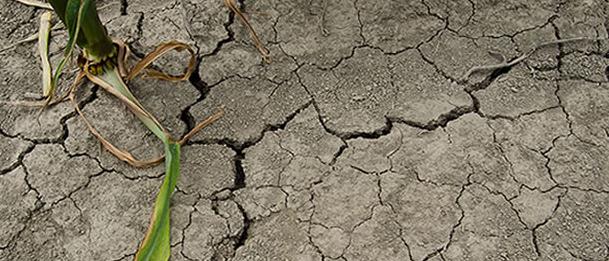
* The Iowa Climate Statement, focused on the Drought of 2012, and how it is consistent with a warming climate, is
here (pdf).
71,000 New Yorkers: "Rise Does Matter". You couldn't
pay me to buy a home within 10 feet of sea level. The data is the data,
the trends are the trends, and rising sea levels don't bode well for
coastal residents. Sandy was a shot across the bow, a harbinger of
future storm surges to come. Remember, it was a (huge) Category 1 storm
with 90 mph sustainted winds near New York City. What happens when the
inevitable Categor 3 storm takes a similar track? It'll make Sandy look
like a walk in the park.
The map above is from Climate Central's interactive "
Surging Seas" tool,
which is worth a look. Experts calculate that warming (expanding) sea
levels have risen roughly 8" in the New York City area in the last 100
years. Did this make Sandy's storm surge worse? Absolutely. And there's a
way to calculate the incremental impact of sea level rise, as described
at
Global Warming: Man or Myth: "
Superstorm Sandy produced record storm surge levels for locations in and around the NY City metropolitan region. One way that global warming made Sandy worse
is because global warming is causing sea levels to rise. Sea levels
have risen more than a foot in the New York City region since the
Industrial Revolution. So what difference did this extra foot make for
the citizens of New York City? Quite a lot. 6,000 more people impacted for each inch of rise!..."
70,929 more people and 30,551 more homes flooded.
A Failed Experiment. The hottest holiday gift this
year out east? Emergency generators. Sandy left millions in the dark for
days, even weeks. But a massive June derecho, a miniature "land
hurricane", a supersized swirl of severe thunderstorms - the largest
ever observed - left millions more in the dark from the Ohio Valley to
Washington D.C. My relatives living outside Washington are still
traumatized by the freak summer display of nature at its worst.
The New York Times' Nicholas Kristof explains how we got here: "
In
upper-middle-class suburbs on the East Coast, the newest must-have
isn’t a $7,500 Sub-Zero refrigerator. It’s a standby generator that
automatically flips on backup power to an entire house when the
electrical grid goes out. In part, that’s a legacy of Hurricane
Sandy. Such a system can cost well over $10,000, but many families are
fed up with losing power again and again. (A month ago, I would have
written more snarkily about residential generators. But then we lost
power for 12 days after Sandy — and that was our third extended power
outage in four years. Now I’m feeling less snarky than jealous!)..."
New Model Says Science Underestimates Climate Change.
Public Radio International (PRI) has the story and audio clip; here's an excerpt: "
Scientists
agree that the planet is warming, but there is a wide range of
projections as to how hot it’s going to get. A new analysis from
scientists at the National Center for Atmospheric Research finds that
the more alarming estimates may be the most accurate. John Fasullo, a
climate scientist at the National Center for Atmospheric Research in
Colorado responsible for the analysis, said scientists have projected a
global increase in temperatures of between three and eight degrees.
In short, he said, that's a question of whether New York City becomes
more like Richmond, Va., or more like Atlanta, by 2100, or roughly 90
years from now. "There is the capacity for further warming after that,
or if we take action to curb climate change, less warming eventually,"
he said. The biggest source of divergence, from three to eight
degrees, Fasullo said, is how clouds will change from the increase in
greenhouse gasses..."
Photo credit above: "
John Fasullo, right, and colleague Kevin Trenberth work at the National Center for Atmospheric Research in Colorad." (Photo by John Fasullo.)
President Obama's False Choice: Global Warming Or The Economy? The story from
Huffington Post; here's an excerpt: "...
The
president is understandably concerned that the American public elected
him with a mandate to focus on jobs, growth and the economy, and any
deviation from this is, as he says, not something "I would stand for."
However, the very jobs he hopes to create and the economic engine he
hopes to stoke will be influenced by the impacts of climate change.
According to a report in Time,
the damages caused by Hurricane Sandy will cost from $30 billion to
$60 billion. Clearly, the world cannot afford too many super-charged
storms. Meanwhile, record heat plagued most states during the summer of
2012, leading to a drought that might be the most costly natural
disaster in history. There are brand-new jobs to be had in new green energy technologies. Plus, according to the respectable Stern Review,
spending just 1 to 2 percent of GDP today (about $900 per person per
year, or the price of a cell phone plan) will take care of current
emissions. Waiting a few decades means the cost goes up to a far more
painful 20 percent. In simple terms, if we don't deal with the issue of
climate change it will hurt jobs, growth and the economy, saddling not
just our generation, but our children's generation as well, with debt
and consequences..."
Warming Lakes: Climate Change And Variability Drive Low Water Levels On Great Lakes. Here's a snippet of an interesting blog post at
National Geographic: "
For
people living around the Great Lakes, water levels this past month
have appeared much lower than many will remember. The upper Great Lakes
reached near-record low water levels in October. This was most evident
on Lakes Michigan and Huron, where lake levels dropped to less than
two inches (4 cm) above record lows and 28 inches (71 cm) below the
long-term average. All five lakes, plus Lake St. Clair, remain below
their long-term averages. Rock and sand recently exposed by low water
levels made stretches of the northern Lake Michigan shoreline look like
a moonscape. Recreational boaters had trouble navigating the shallow
water this fall, and shipping companies lightened loads to compensate
for low water. Lakes Michigan and Huron hovered just above a record low
set nearly 50 years ago, and Lake Superior was within five inches (11
cm) of a record low set in 1925..."
Photo credit above: "
Low water levels expose the sandy lake bottom on Lake Michigan." Photo by Jeff J. Cashman.
China Issues Report Addressing Climate Change. There
is no more "debate" about climate science, in China or in Europe. The
Chinese have been witnessing the implications of a warming climate, and
they are moving forward with plans to mitigate and adapt - slowly moving
away from coal-fired power generation. Here's an update from
Xinhua: "
China
on Wednesday published a report detailing policies and efforts that
have been made over the past year in facing up to the challenges of
global climate change. The report, titled China's Policies and Actions
for Addressing Climate Change (2012), was released before the United Nations
Climate Change Conference, which will be held from Nov. 26 to Dec. 7 in
Doha, Qatar. The report outlines actions taken by the Chinese
government to mitigate and adapt to climate change. It also documents
measures to promote the building of low-carbon communities and advance
international negotiation and cooperation. During the 2006-2010 period,
the aggregate energy consumption per unit of gross domestic product (GDP)
dropped 19.1 percent from that of 2005, which is equivalent to a
reduction of 1.46 billion tonnes of carbon dioxide (CO2) emissions. This
means China has accomplished its energy conservation goals listed in
the 11th Five-Year Plan (2006-2010), said the report..."
Why The U.S. Can't Stop Climate Change Alone (In 2 Graphs). Speaking
of China, here is why an international treaty is essential. Greenhouse
gases don't respect borders - this is a global challenge and will
require a global solution. I suspect this is another factor that makes
some people uneasy, involving the U.N. - one more step toward a "One
World Government", according to my conspiracy-theorist friends. I don't
see a plot around every corner, but it makes sense, at least to me, that
we need to get China and India (specifically) to agree to drastic cuts
in the dirtiest of fuels, which includes coal. Here's more from
The Atlantic: "
President Obama's election night reference to
global warming kindled a bit of hope among liberals that his
administration might make a concerted effort to tackle the issue in its
second term. And unless we all plan on getting used to an annual
superstorm season, we should hope so. But here's a reminder, courtesy of
a recent World Resources Institute report on
coal consumption, that whatever the U.S. does to deal with climate
change, our efforts will be for naught unless they're part of a global
effort. Coal-fired power plants are the top contributor to worldwide
greenhouse gas emissions, and the future of coal will not be decided, by
and large, in the United States, which consumed about 13 percent of
the worldwide total in 2010. Instead, it's in the hands of China, which
burned up 46 percent of it..."
History Repeats Itself. Here's an excerpt from a
PBS companion piece
to Ken Burn's excellent 2-part series, The Dust Bowl, which is must-see
TV. See if this rings a bell with current concerns about what we're
doing to our (global) environment? "...
As historian Robert Worster
wrote, “The ultimate meaning of the dust storms of the 1930s was that
America as a whole, not just the plains, was badly out of balance with
its natural environment. Unbounded optimism about the future, careless
disregard of nature’s limits and uncertainties, uncritical faith in
Providence, devotion to self-aggrandizement – all these were national
as well as regional characteristics.”
Climate Change Made Sandy Worse. Period. Chris Mooney explains at
Mother Jones; here's an excerpt: "
Superstorm
Sandy—and its revival of the issue of climate change, most prominently
through Michael Bloomberg's sudden endorsement—probably aided
President Obama's reelection victory last night. But at the same time,
there has been a vast debate about the true nature of the storm's
connections to global warming (as well as plenty of denialism regarding those connections). In fact, there has even been the suggestion,
by cognitive linguist George Lakoff, that if we all stopped thinking
about causation as something direct (I pushed him, he fell) and rather
as something systemic (indirect, probabilistic), then we really could
say with full accuracy that global warming caused Sandy. Systemically...."
Photo credit above: "
Flooding in Breezy Point, Queens."
Brett Brownell, Mother Jones
World Bank Climate Report Says "Turn Down The Heat" On Warming Planet. This report created quite a stir; here is the first of several reports from Reuters and
Huffington Post: "
All
nations will suffer the effects of a warmer world, but it is the
world's poorest countries that will be hit hardest by food shortages,
rising sea levels, cyclones and drought, the World Bank said in a
report on climate change. Under new World Bank President Jim Yong Kim,
the global development lender has launched a more aggressive stance
to integrate climate change into development. "We will never end
poverty if we don't tackle climate change. It is one of the single
biggest challenges to social justice today," Kim told reporters on a
conference call on Friday. The report, called "Turn Down the Heat,"
highlights the devastating impact of a world hotter by 4 degrees
Celsius (7.2 Fahrenheit) by the end of the century, a likely scenario
under current policies, according to the report. Climate change is
already having an effect: Arctic sea ice reached a record minimum in
September, and extreme heat waves and drought in the last decade have
hit places like the United States and Russia more often than would be
expected from historical records, the report said..."
More Fallout From Urgent World Bank Climate Report.
Live Science has an interesting quote from climate scientist Michael
Mann: "..Climate deniers often claim that solutions to global warming
are part of a "global socialist agenda," Mann told
LiveScience. "
The
fact that the World Bank — an entity committed to free market
capitalism — has weighed in on the threat of climate change and the
urgency of acting to combat it, puts the nail in the coffin of that
claim," he said.
A changing world
The report,
issued by the Potsdam Institute for Climate Impact Research and
Climate Analytics for the World Bank, urges nations to work to prevent
the Earth from warming 7.2 degrees Fahrenheit (4 degrees Celsius) past
preindustrial averages. Already, global mean temperatures are running
about 1.3 degrees F (0.8 degrees C) hotter than before the onset of the
industrial revolution..."
Photo credit above:
Huffington Post.
Global Warming Will Devastate The Poorest Countries, World Bank Study Finds. More details from
Think Progress:
- Extreme heat waves, that without global warming would be
expected to occur once in several hundred years, will be experienced
during almost all summer months in many regions. The effects would not
be evenly distributed. The largest warming would be exptected to
occur over land and range from 4° C to 10° C. Increases of 6° C or
more in average monthly summer temperatures would be expected in the
Mediterranean, North Africa, Middle East and parts of the United
States.
- Sea level-rise by 0.5 to 1 meter by 2100 is likely, with higher levels also possible. Some
of the most highly vulnerable cities are located in Mozambique,
Madagascar, Mexico, Venezuela, India, Bangladesh, Indonesia, the
Philippines and Vietnam.
Report. The World Bank report is
here. Another perspective from
The Hill.
Why Climate Deniers Have No Scientific Credibility - In One Pie Chart. The full story from
desmogblog.com.
How To Profit From Global Warming. If you don't
factor water struggles, along with a morphing (stormier) climate into
your portfolio you may be doing your investments a long-term disservice.
As I've been saying for 20 years, climate change is a threat, and a
massive opportunity. Here's a clip from
Seeking Alpha: "
Based
on the global warming hype you would probably think that it's a
diabolical thing to end all life and bring on the end of days. We
constantly hear about all of the negative effects, but does anyone talk
about the positive effects? Of course our masters in Washington,
London, Brussels, and Beijing will never spoil a good narrative by
giving any mention whatsoever to such needless complexities. But in
fact it is a complex situation and if we think about it for a while we
can find positive effects and even ways to profit from global warming..."
World's Largest Investors Call For Climate Change Action.
When people start to notice their investments are being routinely,
consistently impacted and battered by a changing climate, some of the
deniers may eventually see the light. Some (proactive, enlightened)
companies are already trying to get out ahead of the curve, as reported
by Reuters and
Huffington Post: "
A
coalition of the world's largest investors called on governments on
Tuesday to ramp up action on climate change and boost clean-energy
investment or risk trillions of dollars in investments and disruption
to economies. In an open letter, the alliance of institutional
investors, responsible for managing $22.5 trillion in assets, said
rapidly growing greenhouse gas emissions and more extreme weather were
increasing investment risks globally. The group called for dialogue
between investors and governments to overhaul climate and energy
policies. The call comes less than a week before major U.N.
climate talks in Doha, Qatar. Almost 200 nations will meet in Doha
from Nov. 26 to Dec. 7 to try to extend the Kyoto Protocol, the
existing plan for curbing greenhouse gas emissions by developed
nations that runs to the end of 2012..."
200 Investment Firms Issue A Warning On Climate Change. Business Insider has more details
here.

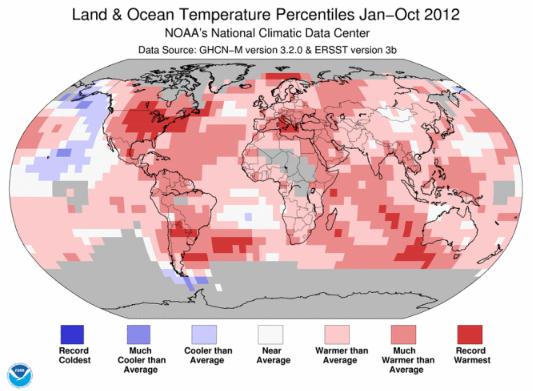
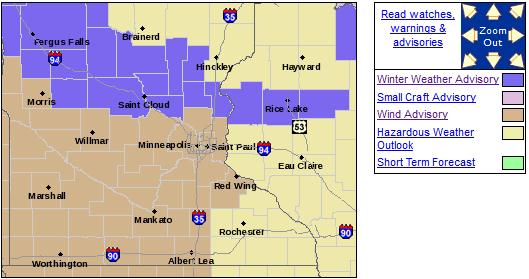

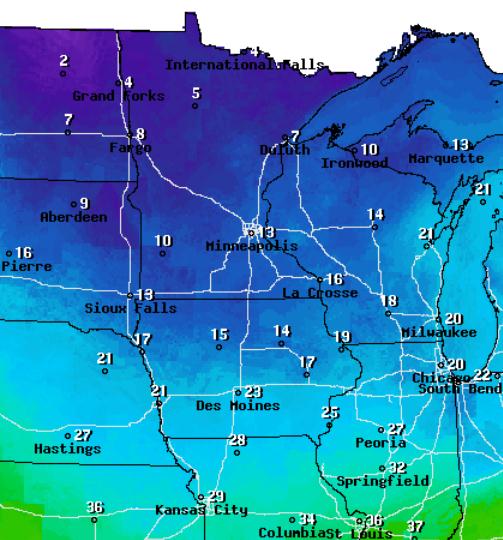

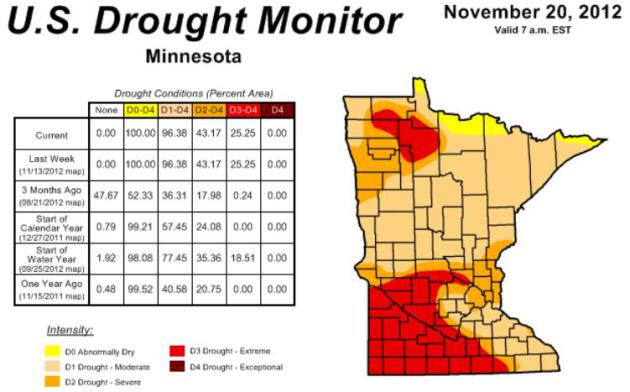
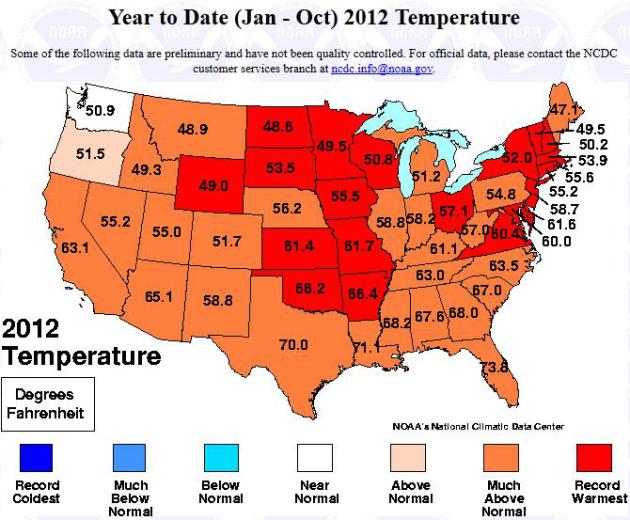

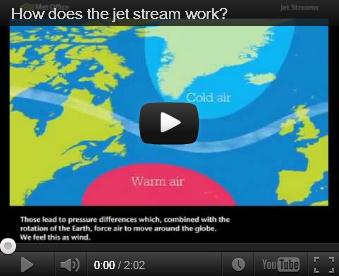
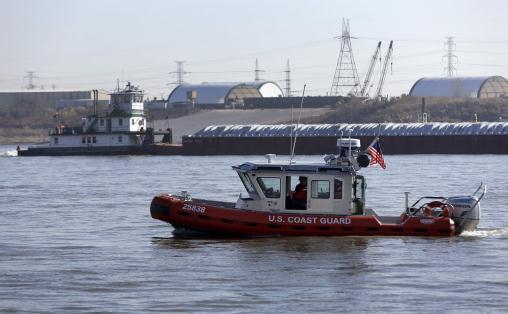
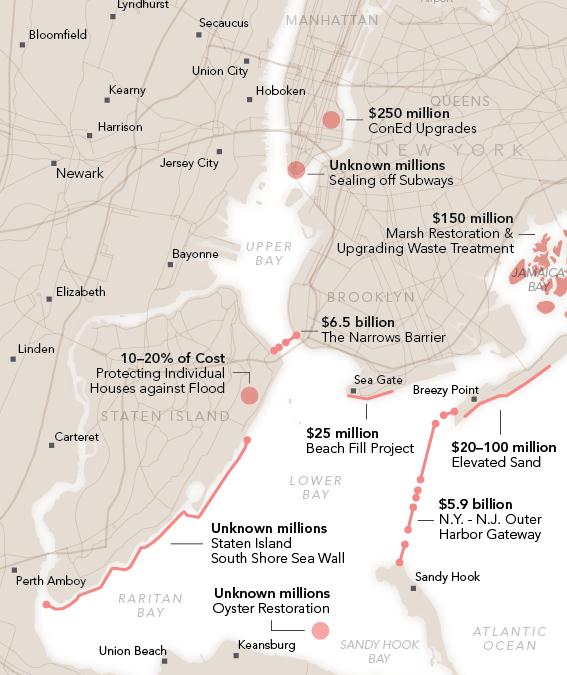
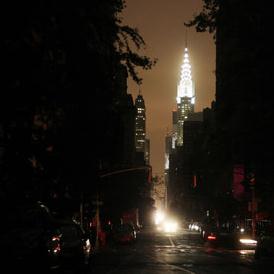



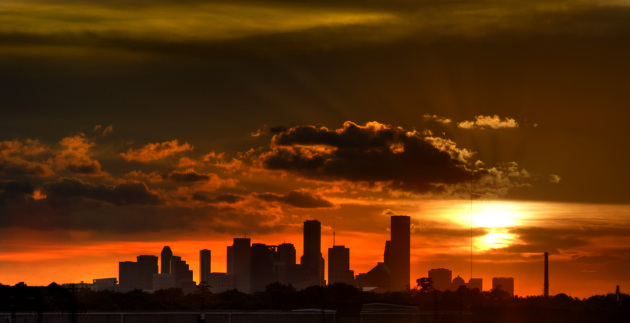
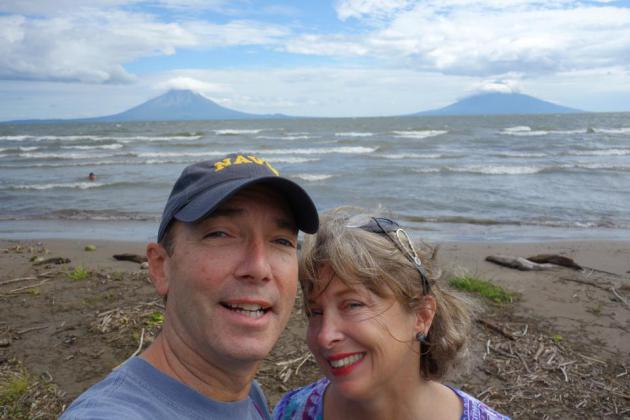

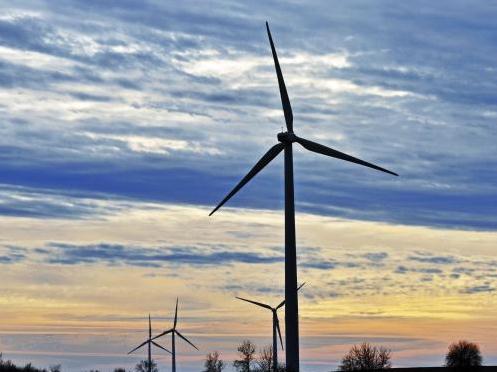







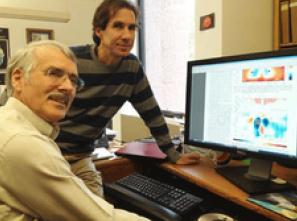
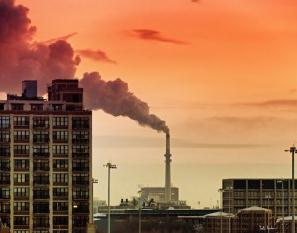
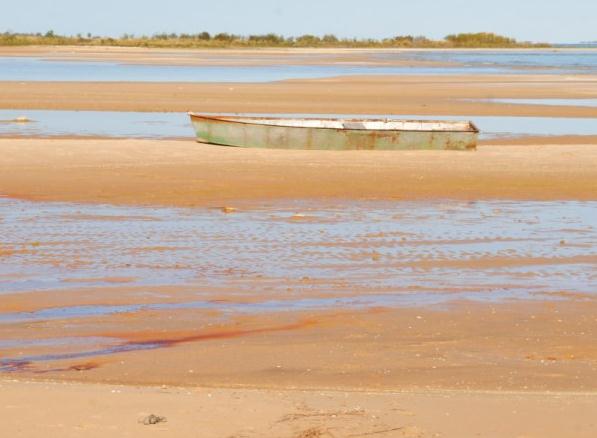


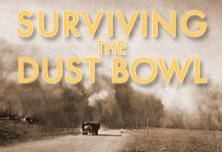
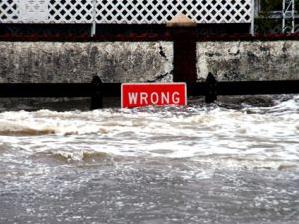
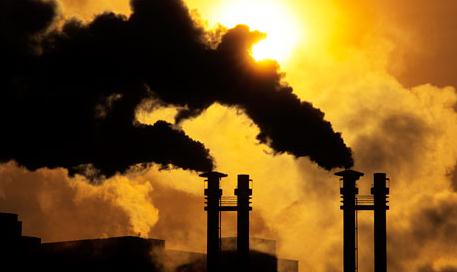
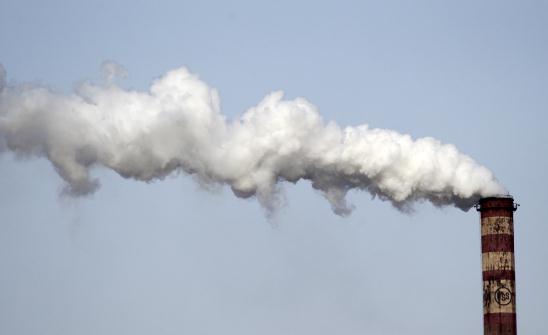
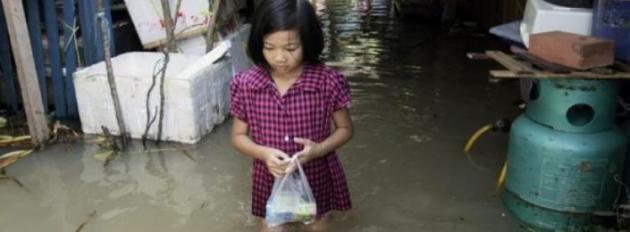


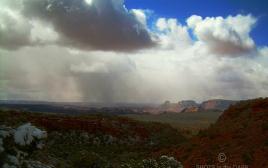


No comments:
Post a Comment